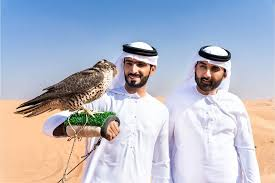
In a country that has grown from small desert towns into a global hub of skyscrapers, technology, and luxury, Emirati heritage remains a powerful reminder of identity, values, and belonging. The United Arab Emirates (UAE) is often celebrated for its futuristic cities like Dubai and Abu Dhabi, but at its heart lies a deep respect for the past.
Emirati heritage is more than history it is living culture. From traditional clothing and music to hospitality and camel racing, these traditions are woven into everyday life. In today’s rapidly changing world, the question is: how can a young nation preserve its roots while also moving forward?
The UAE was founded in 1971, but Emirati culture has existed for centuries, shaped by the desert, the sea, and the people’s resilience. Bedouin life taught values of generosity, courage, and family unity. Fishing and pearl diving communities left behind songs, crafts, and rituals that still inspire Emiratis today.
Hospitality is one of the strongest pillars of Emirati culture. Serving guests Arabic coffee (gahwa) and dates is more than custom it is a symbol of respect and welcome. Even in modern offices and luxury hotels, this tradition continues.
Traditional dress also carries pride and meaning. Men wear the kandura (a long white robe), while women wear the abaya and shayla. These clothes are not just fashion but represent modesty, elegance, and connection to heritage.

Despite skyscrapers, shopping malls, and advanced technology, Emirati culture is far from forgotten. In fact, the government and people actively work to keep it alive.
National festivals like the UAE National Day, Qasr Al Hosn Festival in Abu Dhabi, and the Al Dhafra Festival highlight traditional music, poetry, falconry, camel racing, and handicrafts. These events attract not just Emiratis but also millions of tourists who want to experience authentic culture.
Falconry, once a survival skill, is today a UNESCO-recognized heritage sport. Camel racing, another ancient practice, is now modernized with robot jockeys, blending tradition with technology. Handicrafts such as weaving (sadu) and pottery are taught in cultural centers to ensure younger generations learn the skills.
The UAE’s leadership has always emphasized the importance of heritage. Founding father Sheikh Zayed bin Sultan Al Nahyan believed that a nation without a past has no present or future. His vision still shapes policies today.
Institutions like the Dubai Culture and Arts Authority and the Department of Culture and Tourism in Abu Dhabi invest heavily in preserving historical sites, museums, and archives. Landmarks such as Al Fahidi Historical District in Dubai and Al Ain Oasis in Abu Dhabi are carefully protected and promoted as cultural treasures.
The revival of pearl diving traditions, restoration of old forts, and support for Emirati poets and artists are examples of how heritage is preserved at every level.
While Emirati heritage is celebrated, modernization also brings challenges. Globalization has introduced new lifestyles, technologies, and entertainment that compete with traditional practices. Young Emiratis often balance between enjoying modern music, fashion, and social media while staying connected to their cultural identity.
Another challenge is the rapid growth of expatriate populations in the UAE. With over 80% of the residents being foreigners, Emiratis sometimes feel their traditions risk being overshadowed. This is why cultural education in schools and heritage festivals play a key role in keeping traditions alive.

The younger Emirati generation is showing renewed interest in culture. Social media influencers often highlight traditional clothing, cuisine, and music to millions of followers. Events like Heritage Week in schools encourage children to wear traditional clothes, prepare Emirati dishes, and learn folk dances.
Technology is also helping in preservation. Mobile apps teach Arabic calligraphy, while virtual reality projects allow users to explore old souqs (markets) and desert life. Museums are creating interactive exhibits that connect with the digital-first generation.
For young Emiratis, heritage is not a burden but a source of pride. They see it as a way to stay unique in a globalized world.
Food is another powerful link to heritage. Traditional Emirati dishes such as harees (a slow-cooked wheat and meat dish), machboos (spiced rice with meat or fish), and luqaimat (sweet dumplings) are popular during Ramadan and family gatherings. While fast food and international cuisines are everywhere, Emirati food festivals and cooking classes ensure that these flavors remain a part of daily life.
Restaurants across the UAE are increasingly offering authentic Emirati meals, giving tourists and residents a chance to taste history on a plate.
Emirati heritage is not only preserved within the country but also recognized worldwide. UNESCO has listed several elements of Emirati culture, including falconry, al-ayyala (a traditional group dance), and sadu weaving. These recognitions place Emirati traditions on the global stage, reminding the world of the richness of Arabian culture.
The UAE also uses its cultural heritage as soft power. By showcasing traditions at international expos, festivals, and cultural exchanges, the country builds a unique image that blends progress with authenticity.
As the UAE continues to grow as a global leader in technology, business, and innovation, one thing is certain: its future will always be tied to its past. Emirati heritage is not just about looking back but about carrying forward values of hospitality, resilience, and unity.
The balance between tradition and modernity is not easy, but the UAE has shown that it is possible. By preserving culture while embracing progress, the country offers a model for the world: a modern nation with a timeless soul.
READ MORE:- Inside the World of Business Acquisitions: Secrets of Corporate Growth 2025
